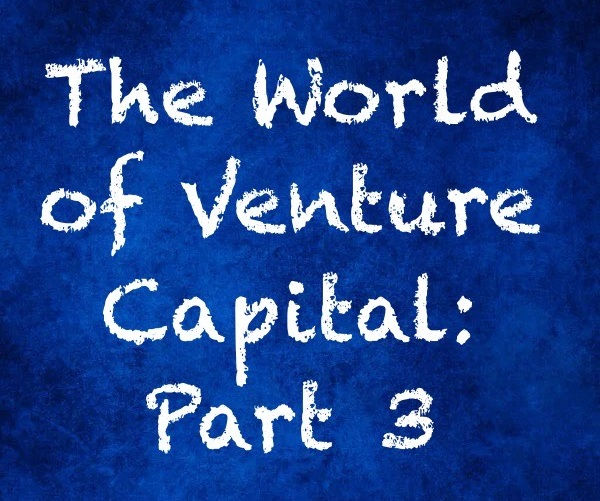The World of Venture Capital: Part 4
- Pranav Gupta
- Aug 11, 2025
- 3 min read
Venture Capital Shapes Founders (and Not Always for the Better)!

When we think of venture capital, the focus is usually on the startups. The product. The market. The valuation. The exit.
But there’s a less-discussed reality: VC funding doesn’t just shape the company, it shapes the founder. Sometimes for the better… and sometimes in ways that can quietly warp the original vision.
Let’s follow the founder’s journey through the VC lens.
The “Dreamer-to-CEO” Makeover
Founders start with an idea they can’t stop thinking about. They’re tinkerers, dreamers, builders. Then the term sheet arrives, and with it comes a subtle job promotion: they’re now running a venture-backed business.
This comes with expectations:
Growth at all costs - Your MVP just got a steroid shot.
Metrics over mission - Vision is nice, but retention curves pay the bills.
Boardroom polish - Hoodies are fine, but quarterly board decks are now part of your wardrobe.
This transformation can be good - founders develop discipline, strategic thinking, and a CEO mindset. But it also means they may stop being the builder who fell in love with the problem in the first place.
The “Go Big or Go Home” Pressure Cooker
VC money is not patient money. The fund has a 10-year clock ticking. Investors want their 10x, preferably yesterday.
For founders, this often means:
Expanding into markets earlier than planned.
Hiring aggressively, even before revenue supports it.
Prioritizing what scales fast over what lasts long.
Sometimes this works spectacularly (hello, Uber). Sometimes it ends with a slide deck explaining “strategic restructuring” (goodbye, countless others).
The Subtle Art of Founder Rewrites
VCs back the jockey as much as the horse. But jockeys can be… replaced.
If growth stalls or investor confidence dips, founders can find themselves nudged aside for a “professional CEO.” It’s nothing personal, just portfolio management.
This can leave a founder feeling like a guest at a party they started but no longer control.
The Psychological Tax
We talk about dilution in equity terms, but there’s also dilution of self.
Identity shift - You go from being “a person building something” to “a KPI machine.”
Risk addiction - Once you’ve lived in hypergrowth mode, steady progress can feel like failure.
Vision drift - When every decision is filtered through “What will the investors think?”
The irony? Founders often get into startups to escape corporate politics, only to find themselves in a higher-stakes version of it.
When VC Shapes for the Better?
It’s not all doom and dilution. Good investors can:
Keep founders accountable without suffocating their creativity.
Provide access to talent, networks, and expertise they’d never get alone.
Push them to think bigger than they ever imagined.
The best VC-founder relationships are more like creative partnerships than transactions. But those are rarer than pitch decks suggest.
Final Thoughts:
Venture capital is a powerful tool. Like all powerful tools, it can build or it can break.
For founders, the trick is to know what you’re trading and not just in equity, but in self. The money will shape you. The question is: will it shape you into the founder you wanted to be, or someone else entirely?
If you want to dive deeper into The World of Venture Capital, I’m soon launching VC Times, a weekly newsletter that brings you the sharpest insights, deals, and trends from the Indian venture capital world curated with clarity and zero fluff.
Subscribe now to get early access: Click here!
Thanks for reading my thoughts and as always, rooting for you from afar.



Comments